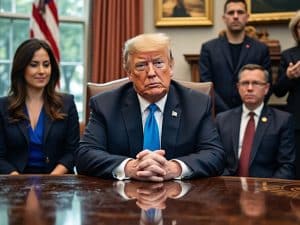Sale of cryptocurrencies restricted in the Netherlands

The Dutch government is tightening regulations on the sale of cryptocurrencies. Buyers of cryptocurrencies will no longer be allowed to be intentionally misinformed, and misleading advertisements will be prohibited so Emerce informs. This often occurs through promotional activities by so-called influencers who frequently spread false and exaggerated claims. In the future, it will be mandatory to clearly identify the sender of advertising messages.
These measures are outlined in an internet consultation for the national implementation law of the European Markets in Crypto Assets Regulation (MiCA), which has begun for a duration of six weeks. On June 30th of this year, the European Commission introduced a new package of laws to regulate the cryptocurrency market, called MiCA (Markets in Crypto Assets Regulation).
Providers of cryptocurrencies will no longer be able to sell excessively risky or complex products or intentionally misguide buyers. If a platform is hacked and cryptocurrencies are stolen, providers will be required to compensate their customers. Cryptocurrency service providers are also prohibited from using their customers’ assets for proprietary trading.
The European and national cryptocurrency legislation aims to increase regulation, but it does not cover all risks. Cryptocurrency trading remains an unstable and risky market, even after the implementation of MiCA. The Ministry of Finance emphasizes the importance for buyers to thoroughly inform themselves about the purchase of cryptocurrencies and to be aware of the risks associated with cryptocurrency trading.
Cryptocurrencies and crypto companies will fall under the supervision of the Financial Markets Authority (AFM). AFM regulators will now oversee whether cryptocurrency trading is conducted in accordance with the rules and whether buyers of cryptocurrencies are treated fairly by crypto exchanges or wallet providers, or if there is a potential for fraud or scams. The Dutch Central Bank (DNB) will oversee entities issuing stablecoins. DNB will verify whether stablecoins are truly stable and backed by dollars or euros.








